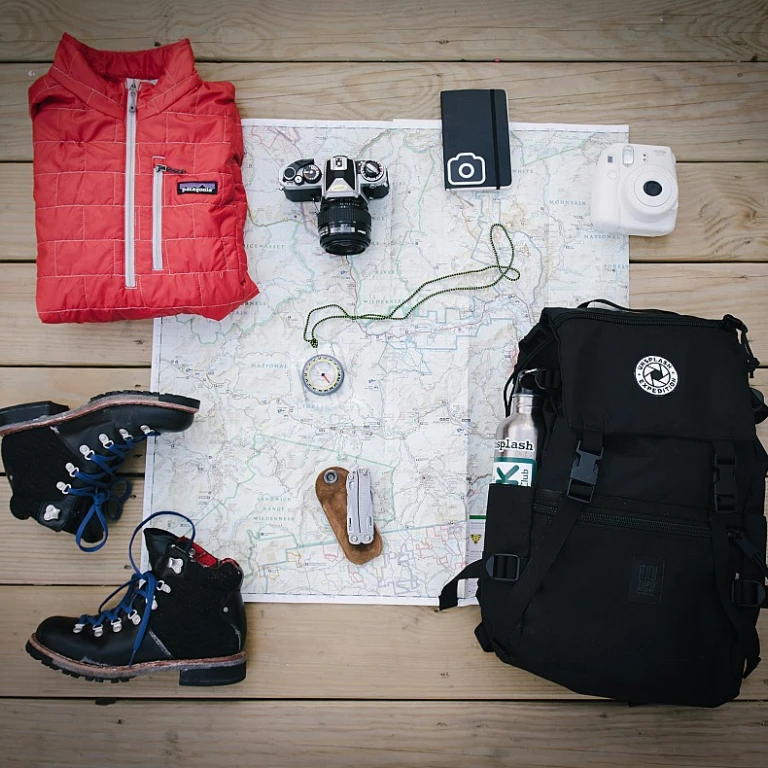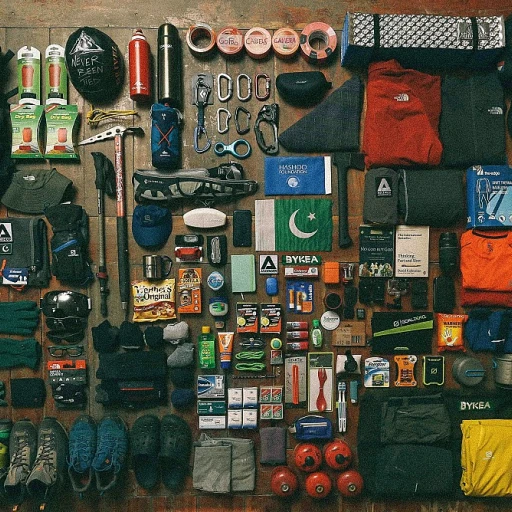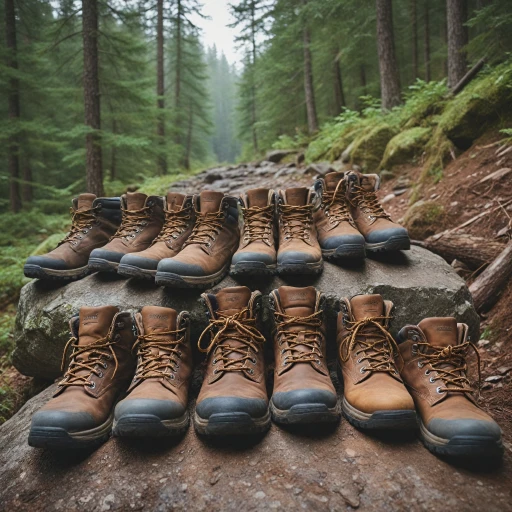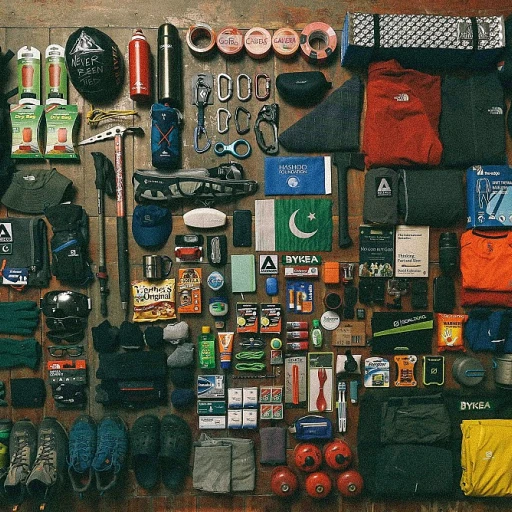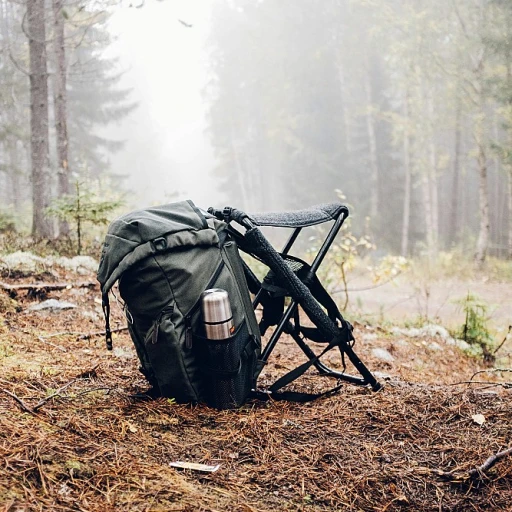
Understanding the Role of a Walking Staff
The Essential Gear for Every Hiker
Embarking on a hiking journey calls for a variety of essential tools and equipment, with the walking staff taking a prominent role. A trusty walking staff, also referred to as a hiking stick or trekking pole, can make a remarkable difference in your outdoor experience. It serves as an additional point of support, helping balance the hiker across rough terrains, and reduces physical strain on your lower body.
Various forms of walking sticks, from rustic walking canes to modern trekking poles, are available to suit different hiking needs. Whether fashioned from wood or high-tech materials, these staffs help enhance stability and leverage, particularly when tackling ascending trail sections. They effectively distribute the weight bearing load away from your knees and back.
Adapting your chosen walking stick to your hiking adventure involves considering factors like material, grip, and additional features such as rubber tips for grip on slippery surfaces. For those who value tradition and a connection with nature, exploring the benefits of a wooden walking hiking staff might reveal the ideal commitment to sustainability and functionality.
The benefits of utilizing a walking staff closely align with the practical support it provides, working synergistically with other hiking equipment, such as quality hiking boots. However, the advantages lie not only in their physical support but also in their multifaceted utility, guiding hikers safely through the wild.
Choosing the Right Walking Staff for Your Needs
Selecting the Best Walking Stick for Your Needs
Choosing the perfect walking stick involves a blend of personal preference, terrain requirements, and budget considerations. To make an informed decision, it's essential to consider several factors such as material, design, and additional features that might enhance your hiking experience.
First, identify the style of walking stick that suits your hiking habits. Whether it's a traditional wooden staff, a modern trekking pole, or a collapsible hiking stick, every option has its unique advantages:
- Material: Wooden staffs offer a rustic charm and are often more durable, whereas aluminum and carbon fiber sticks provide lightweight flexibility.
- Design: Consider if a single staff or a pair of trekking poles aligns with your hiking goals. Pairs are beneficial for balance on uneven terrain.
- Features: Look for removable rubber tips, adjustable lengths, and ergonomic grips that add comfort and practicality during your hikes.
Next, examine the price range and determine your budget. Some sticks can be found at a higher price point due to advanced features, but there are plenty of options that fit various budgets without compromising on quality.
Additionally, consider the walking stick’s SKU and delivery options, ensuring it matches your required specifications and arrives promptly. Many outdoor shops and online retailers offer a variety of choices where you can add the walking stick to your cart after thorough research.
Ultimately, finding the perfect walking staff can enhance your hiking adventures dramatically. Evaluate your individual needs, and shop with confidence, knowing that the ideal walking companion is out there waiting to join your next journey.
Benefits of Using a Walking Staff with Hiking Boots
Unveiling the Hidden Strengths for Enhanced Trail Adventures
Embarking on a hiking journey, particularly with new terrain in your sights, can be greatly enhanced by adding a walking staff to your gear. When donned alongside your trusted hiking boots, the walking staff becomes not just a prop but a companion that complements your footwear, making each step more assured and stable.
Here are some benefits of incorporating a staff or stick into your hiking ensemble:
- Enhanced Stability: Pairing a tactical walking stick with hiking shoes offers better balance, especially on uneven terrain. This can be a lifesaver when the trails become challenging.
- Support and Confidence: Using a staff provides a sense of security, functioning much like a cane to support your body, thereby reducing stress on lower limbs during long treks.
- Efficient Energy Use: Trekkers often use poles or staffs to distribute energy. This technique helps conserve muscle energy, particularly when navigating rocky paths or climbing steep slopes.
- Flexibility in Terrain: Whether your preference leans toward trekking poles or a more traditional wood walking staff, both offer adaptability. Rubber tips, often included, ensure that these sticks are versatile over different surfaces.
- Adjustable Comfort: Many modern staffs have adjustable features, allowing users to customize height for individual comfort levels, accommodating varying terrain challenges easily.
Making the right choice in walking aids can transform your hiking experiences, turning trials into manageable moments with a sense of ease and exploration.
Techniques for Effective Use of a Walking Staff
Perfecting Your Walking Technique with a Staff
Effectively using a walking staff during your hiking adventures involves more than simply holding the stick. For hikers who appreciate the combination of trekking poles and hiking boots, understanding the nuances of movement and grip can significantly enhance your experience. Here are some essential tips to consider:- Grip and Adjustment: Find a natural grip that keeps your arms relaxed while maintaining control over the walking staff. Adjust based on terrain changes, as different surfaces may require distinct grips.
- Foot-Staff Coordination: Sync your step with the positioning of the staff. As your left foot goes forward, position the staff with your right hand, helping to stabilize your balance across uneven paths.
- Posture and Angle: Maintain an upright posture to alleviate strain on your spine. Use the staff at a slight forward angle, allowing for a more calculated descent while climbing down treacherous inclines.
- Strategic Use on Slopes: Your walking staff proves useful when ascending steep slopes by offering extra push. When descending, the staff can act as a brake, reducing stress on your knees.
Maintaining Your Walking Staff for Longevity
Care Tips to Maintain Your Walking Staff
Ensuring your walking staff remains in top condition is essential for both safety and performance during hiking endeavors. Regular maintenance not only extends the lifespan of your hiking staff but also enhances each outdoor adventure with consistent reliability.- Clean Regularly: After each hike, it is crucial to clean your trekking poles to prevent the buildup of dirt and grime, particularly around the joints and moving parts. Use a damp cloth to wipe down the wood or the aluminum shaft. Avoid using harsh chemicals that can damage the finish.
- Inspect for Damage: Routinely check your hiking staff for any signs of wear, such as splintered wood or bent metal. Pay special attention to the stick's tip and rubber ferrule, as these take the brunt of the trail impact. Replace any worn parts promptly.
- Store Properly: When not in use, store your hiking staff in a cool, dry place. Avoid leaving it in damp locations or under direct sunlight, which can warp the material or degrade the rubber grips and tips.
- Check Locking Mechanisms: For walkers using staffs with adjustable lengths, ensure the locking mechanisms are functioning correctly. Whether it's flip-lock or twist-lock, these components should hold firmly and adjust smoothly.
- Oil Wooden Staffs: If you own a traditional wood walking staff, consider applying a wood conditioner or oil periodically to maintain its natural allure and protect against weathering. This simple step can prevent cracking and extend the life of your rustic walking staff.

